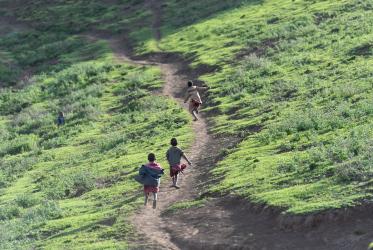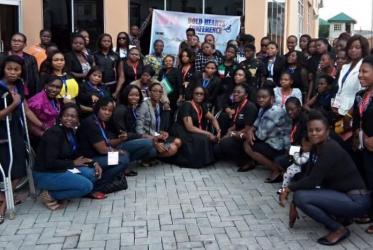Displaying 1 - 20 of 61
Assembly workshop looked toward ending AIDS epidemic by 2030
19 September 2022
A faith-based, holistic approach to HIV and AIDS-care
13 March 2019
Faith and HIV treatment go hand in hand
06 March 2019
Turning mercy and compassion into action
04 March 2019
On the journey to HIV – bridging gaps, debunking myths
21 February 2019
“Called to be a good neighbor”
14 October 2017
Forum strengthens ecumenical commitment to diakonia
12 October 2017
Jürgen Moltmann leads ecumenical reflections in Geneva
14 January 2016
Person with disability shares reflection on AIDS conference
10 December 2015
Pilgrimage of justice and peace gives vision for WCC programmes
22 November 2014













